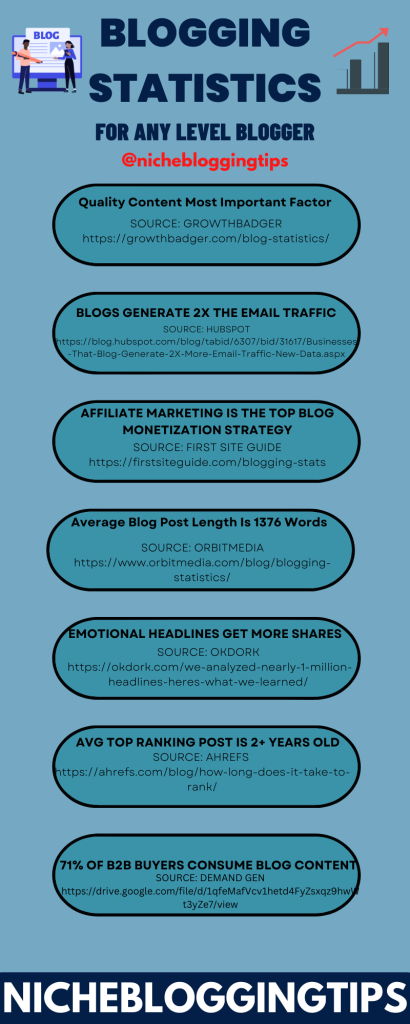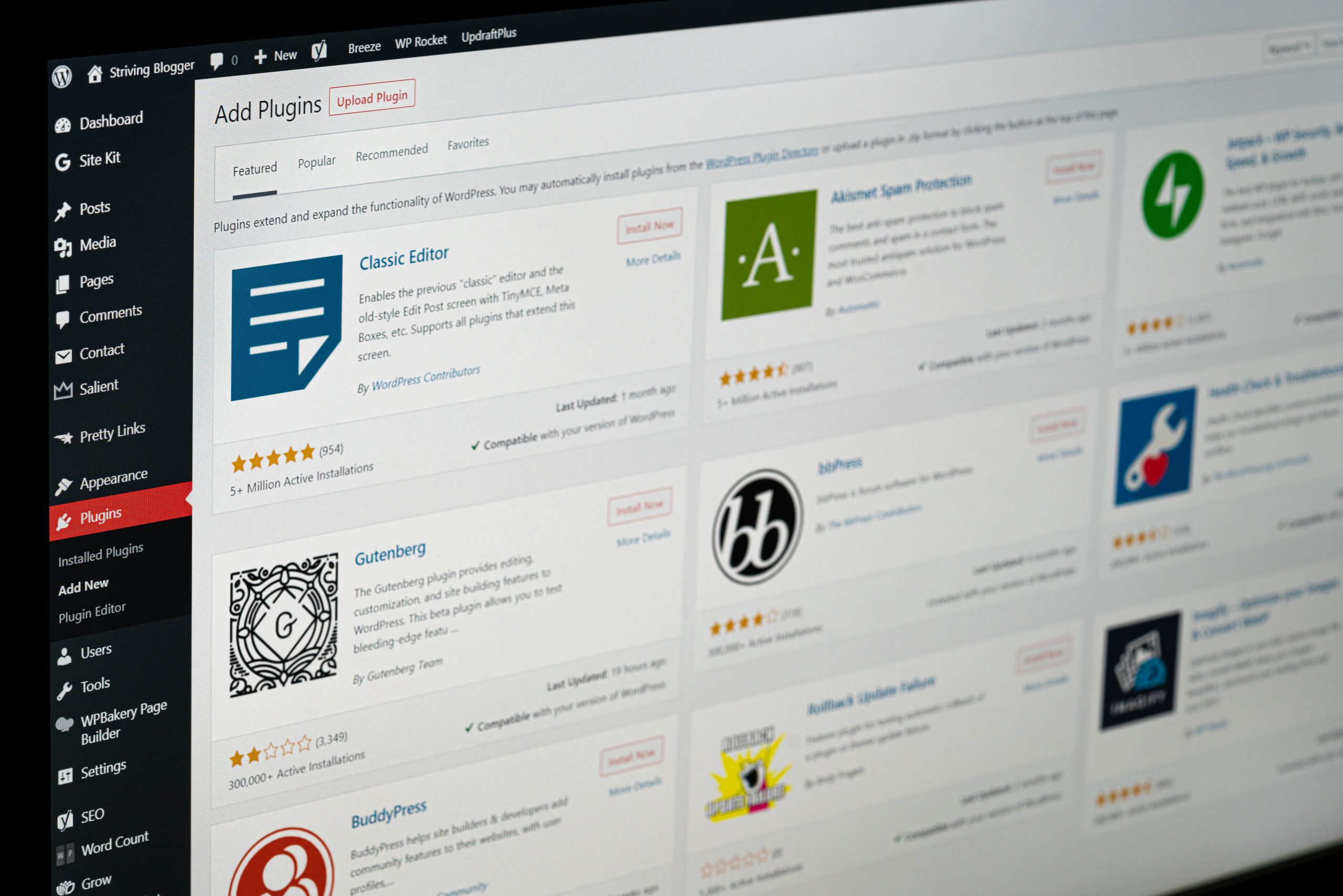What Is A Blog? (Differences And Comparisons To A Website)

What is a blog? The word blog comes from the term “web blog” which is smashed together yet blogging started off in the late 90s, and popular during the early 2000s.
Just as a way for people to live their lives, share their stories or thoughts and opinions, and react to news (the things that vloggers do nowadays).
That’s what people were doing a lot with blogs back in the late 90s and early 2000s. But nowadays, blogging has transformed into a form of content marketing to grow businesses.
Some people blog to get free search traffic from Google in order to make money online. A blog is technically a section of your website where you can provide insight on the topics of your website to help people.
It’s part of the website where content that’s published is organized into different categories that are related to the website.
A blog is its own journal that provides regularly updated content in reverse chronological order. So the newest content appears first. Sometimes people use the terms blog and website but they’re not the same.
Typically your blog publishes new posts every few days. Meanwhile, the company’s website, for example, provides information about the company’s history, services, and pricing, which will most likely remain unchanged for quite some time.
Have a comment section so readers can engage with a blogger and other leaders in essence building an online community.
On the other hand, websites don’t usually have a comment section. Their focus is on introducing products and services not only encouraging audience engagement while many blogs are independent others are part of larger websites.
Creators and business owners are creating blogs to educate others establish and build their online presence and make money online.
Many use blogging as part of their content marketing strategies to create blog content related to the target market statement to boost brand awareness.

After You Understand “What Is A Blog” Then Move On Here…
The most common blogs usually work like an online diary. With discussions on various subjects including self reflection and other projects, these blogs provide information on a particular topic such as gaming, traveling, business, etc. that publishes relevant content to an industry, or updates related to its product and target market.
It’s usually a section on a company website but it can also be an independent blog that is based on separate modules.
This content can include product reviews that place affiliate links on the post and receive a commission on the blog when purchases have been made by using these links.
If you’re planning on creating a blog to make money online or improve your online presence, there are many factors to consider.
In order to create a successful blog, it should have high quality content. Your content needs to demonstrate expertise and trustworthiness and to do so you don’t have to use technical jargon.
Just make sure your content is easy to understand and relevant to your target audience.

Your Blog Could Be Found With The Help Of The Search Engines
Using captivating headlines to attract visitors to click on what the content is about. These compelling headlines drive people to click on your blog in search engine results.
When a blog post reaches top rankings in search engines, it will help people easily find your articles when searching for your brand or related terms. It’s an excellent opportunity to generate traffic and leads helping to convert visitors into clients.
Content that may drive traffic to a blog can also damage its reputation and trustworthiness in the long run because some readers will never read your blog regularly.
Search engines prioritize up-to-date content so try to write content at least weekly. It also helps people find blogs that are trying to help solve problems.
Also, make sure your blog has a great interface, a user experience, is easy to navigate, and is mobile-friendly. More and more people now access them from their mobile devices.
A call to action (CTA) button to guide visitors to download your ebook (or mini-course) or subscribe to your newsletter. This will help convert casual readers into high-quality leads.
What Is The Difference Between A Blog And A Website
The confusion really comes because people use website and blog interchangeably and imply that a blog and website are alike even though they are two different things.
So what’s the difference? It’s the same sort of thing where the process is the same. You can publish articles on a blog that is part of a bigger website.
Overall, people don’t use the terms differently because it more to imply what is the main purpose of a website.
If you have an online store and a blog, and your online store gets traffic, you’re not going to refer to your online store as “my blog” you’re going to refer to it as my store.
In other words, you’re gonna say “this is my website” so you’re not going to refer to it as a blog. So if you have a website, where all you do is a blog and write blog posts or articles as a way to get traffic, you’re gonna refer to that kind of website as a blog.
The terminology comes down to what is the main purpose of a website, if it’s primarily blogging is the main feature of the website referred to as a blog.
It’s like an online store who refer to as an online store. If it’s some combination of everything, you’ll just refer to it as your website.
Might be confusing to some but in due time you will understand the differences of what is a blog and a website.

Blogs Can Make Money In A Few Different Ways
The easiest way to make money blogging is affiliate marketing through different products and services. So one of the most popular programs is Clickbank and even Amazon Associates.
Both Clickbank and Amazon Associates allow you to sign up and then start promoting products and services within your blog posts.
Affiliate marketing works when you have targeted traffic and then you put a relevant offer in front of that targeted traffic.
If you want to promote Amazon, you’ll need to create blog posts on product reviews that are related to your niche.
It’s important that you get creative and think about what products are related to your topic and then write blog posts for whatever your website or blog topic is about.
The second way to make money on your blog is to implement an advertising program. You can apply to Google Adsense and then paste Google ads into your website, you could that there are other advertising contextual advertising networks that you can do.
But the way I would go about it is to just wait until you have traffic. If you get at least 10,000 or 50,000 visitors a month and then apply to a higher-end ad network like Ezoic, Mediavine, or AdThrive (100K pageviews required).
They’re able to get better placements for ads on your website and just make more money for you.
Once you have a decent amount of traffic you can also start selling your own products and services to monetize your blog such as an ebook, online courses, membership communities, and so many other ways.
The one thing about making money blogging is that you definitely can and there are certain types of content that you should be writing and you can still treat it as a part-time business too.
You could do things like travel the world and be philanthropic if you choose to do so as well.

Email Marketing Lists And How It Can Affect Your Website
People who search for information can find your blog and subscribe to your email list. You can then optimize your email list by creating an autoresponder series.
The lifetime value of someone who subscribes to your email lists in order to make a profitable revenue source for your website can be tremendous.
I think so many people may also get confused about a website because it has a blog but the primary content is not blog posts.
This is the case for many websites because a blog is a good way to drive traffic and potential customers to your website. Email marketing lists are not the primary thing that most websites center around but should be.
When you’re further down your blogging journey email marketing can be beneficial. This should happen even though your blog may not publish updated content from time to time.
When you go to the homepage of a website, it’s possible that you are offered a free ebook or a mini course using email marketing software.
Businesses may not evolve their strategies into consistent blog content because it’s just something that they are not used to doing on their own.
Once again, these are all kinds of judgment calls, right? But unfortunately, people will do whatever they want as it pertains to their websites even if it isn’t the primary purpose of it.
10 Helpful Advantages Of A Blog
Increased traffic: Blogging regularly allows you to consistently produce new content, which can attract a larger audience and increase traffic to your website.
Improved search engine rankings: By regularly creating and promoting high-quality content, you can improve your website’s search engine rankings, making it easier for potential customers to find you.
Established authority: Blogging about topics related to your business can establish you as an expert in your field, increasing trust and credibility with your audience.
Enhanced social media presence: Sharing your blog posts on social media can increase your reach and engagement, helping to build a loyal following.
Increased brand awareness: A blog can serve as a platform to showcase your brand’s personality and values, helping to increase brand awareness and customer loyalty.
Increased customer engagement: Blogging allows you to directly engage with your customers through comments and social media, giving you the opportunity to build a relationship and address any concerns or questions they may have.
Improved customer retention: By consistently providing valuable and informative content, you can establish yourself as a go-to resource for your customers, leading to increased customer retention.
Increased sales: By providing valuable information and resources on your blog, you can educate potential customers and guide them towards making a purchase decision.
Increased lead generation: By including calls to action in your blog posts, you can encourage readers to sign up for newsletters or request more information, leading to increased lead generation.
Improved customer service: A blog can serve as a platform to address common customer questions and concerns, improving the overall customer experience and satisfaction.
10 Disadvantages Of A Blog That Might Deter Beginners
Time-consuming: Blogging requires a significant amount of time and effort, including researching, writing, editing, and publishing posts, as well as promoting and interacting with your audience. This can be especially demanding for bloggers who are working full-time or have other responsibilities.
No guaranteed income: Unlike a traditional job, blogging does not come with a guaranteed salary or income. Bloggers often rely on ad revenue, sponsored posts, and merchandise sales to make money, which can be unpredictable and unreliable.
Competition: With so many bloggers and websites out there, it can be tough to stand out and attract a loyal following. This can lead to frustration and disappointment for bloggers who are working hard to build their audience and monetize their blog.
Negative feedback: Blogging exposes you to the opinions and criticism of others, and not everyone will agree with or appreciate your content. Dealing with negative comments and feedback can be emotionally challenging, especially for sensitive individuals.
Legal issues: Blogging involves sharing your thoughts and opinions online, which can sometimes lead to legal issues such as defamation or copyright infringement. It’s important for bloggers to be mindful of these issues and to seek legal advice when necessary.
Social media demands: Many bloggers rely on social media to promote their blogs and connect with their audience. However, this can be time-consuming and requires a lot of effort to maintain a strong presence on multiple platforms.
SEO challenges: In order to be successful, bloggers must understand and implement effective search engine optimization (SEO) strategies. This can be a learning curve for those who are new to blogging and requires ongoing effort to stay up-to-date with changing algorithms and best practices.
Technological issues: Bloggers often rely on a variety of tools and technologies to manage their blogs and promote their content, which can be prone to technical issues and glitches. This can be frustrating and time-consuming to troubleshoot and resolve.
Stagnation: It’s important for bloggers to keep their content fresh and engaging, which can be a challenge after you’ve been blogging for a while. Stagnation and writer’s block can lead to a lack of inspiration and a decrease in the quality of your content.
Burnout: Blogging can be a demanding and time-consuming pursuit, and it’s easy to become overwhelmed and burnt out. This can lead to a loss of passion and motivation, which can be detrimental to the success of your blog.
10 Statistics For Blogging That Will Help Beginners
As of January 2021, there are over 463 million blogs on the internet (Source: https://www.statista.com/statistics/236619/number-of-blogs-worldwide/).
The average monthly traffic for a blog is around 9,000 visitors (Source: https://blog.hubspot.com).
Blogs with a clear focus and niche have a higher likelihood of success, with 60% of successful blogs having a clearly defined target audience (Source: https://www.blogtyrant.com).
Blogs with longer content tend to perform better, with articles over 1,500 words receiving more shares and attracting higher search engine rankings (Source: https://www.blogtyrant.com).
Blogs that are updated regularly tend to have higher traffic, with 61% of bloggers publishing new content at least once a week (Source: https://www.blogtyrant.com).
Visual content, such as images and videos, can increase engagement on a blog by 94% (Source: https://www.hubspot.com/marketing-statistics).
The top-performing blogs have a strong social media presence, with 95% of successful bloggers using social media to promote their content (Source: https://www.blogtyrant.com).
The use of headlines and titles can greatly impact the success of a blog, with 8 out of 10 people reading the headline, but only 2 out of 10 reading the rest of the content (Source: https://www.blogtyrant.com).
The use of keywords in blog content can increase search engine rankings and drive more traffic to a blog, with 63% of bloggers using keywords in their articles (Source: https://www.blogtyrant.com).
Monetizing a blog through advertising, sponsorships, and affiliate marketing can be a successful way to earn income, with 20% of bloggers earning over $50,000 per year from their blog (Source: https://www.blogtyrant.com).

The Final Case Is That The Blog Is Just A Website
Check out a website like canva.com, where they don’t even have a blog but it’s just a website that is a cool way to edit your photos.
This is a standalone website with no blog that we use to create and edit our images. Examples of these are going to be things like YouTube or Facebook.
These are just going to be considered websites. If you’re continuing to question what is a blog, you might think what content do you blog about?
It’s really anything you want and contrary to popular belief, blogs are not just online diaries about your thoughts. I think when most people think about starting a blog, that’s what they’re thinking about.
You can blog about whatever your heart desires. It can be a product or a workout you recommend to your friends, or you can use it as a way to meet and connect with others.
There are infinite ways and things that you can blog about but most of it is really up to you and your creativity.
Another cool thing about blogging is that it can allow you more free time to explore your passions and hobbies.
Here’s the one thing that we would say if you want to make money blogging, you definitely can and if you’re interested in that, you should check out our podcast and what we blog about.
Starting a blog would be kind of the final question that we’d have here. I can’t speak for all bloggers but blogging has forever changed and will continue to do so.
FAQs For “What Is A Blog”
What is a blog? A blog is a type of website that primarily consists of written content, often in the form of articles or posts. It is typically updated frequently and may cover a variety of topics.
How is a blog different from a website? While a blog is a type of website, it is distinguished by its focus on written content and its frequent updates. Websites, on the other hand, can be more static and may not necessarily focus on written content.
Can a website also be a blog? Yes, a website can also be a blog. Many websites incorporate a blog section to regularly post updates and new content.
Is a blog only for personal use? Not necessarily. While many people use blogs as a personal platform to share their thoughts and experiences, blogs can also be used for business or professional purposes.
Can anyone start a blog? Yes, anyone can start a blog. There are various platforms, such as WordPress or Blogger, that make it easy to set up a blog and start writing.
Is there a cost to starting a blog? There may be a cost associated with starting a blog, depending on the platform you use and any additional features or customization you want. Many platforms offer free basic options, but there may be fees for advanced features or custom domain names.
Can a blog make money? Yes, a blog can potentially make money through various methods such as advertising, sponsorships, and selling products or services.
Do I need technical skills to start a blog? While some technical skills may be helpful, you do not necessarily need extensive technical knowledge to start a blog. Many platforms have user-friendly interfaces and offer tutorials or support to help you get started.
How do I get people to read my blog? There are several ways to promote your blog and get people to read it, including using social media, participating in blogger communities, and optimizing your blog for search engines.
Can a blog be used for professional or business purposes? Yes, a blog can be used for professional or business purposes. Many businesses use blogs to share company updates, industry news, and other relevant information with their audience.
Check Out This Helpful Content:
Blogging For Entrepreneurs: Best Entrepreneur Blogs To Read [Article]
Why Blogging Is Important For Business And Marketing [Article]
21+ Blogging Tips For Beginners And (Beginner Blogger Mistakes) [Article]
Which Is Better: Blogging Or Vlogging For Bloggers? [Article]
WordPress.com Vs WordPress.org Self Hosted Or Free (Which Is Better?) [Article]
Niche Blogging: How To Start A Niche Blog (Easy Tips & Benefits) [Article]
Best Niches For Blogging With Low Competition [Article]
Niche Blogging Ideas For A Beginner Blogger (5 Popular Niches) [Article]
What Is Niche Blogging? [Article]
What Are The Most Profitable Blog Niches? [Article]
What Are The Best Niches To Start Blogging? [Article]
Episode 24 Episode 25 Episode 26 Episode 27 [Podcast Episodes]
*NOTE: a few of the links on this page are affiliate links and will earn us a small commission if you signup for the services. This adds no cost to you but helps keep Niche Blogging Tips sustainable. It’s also worth noting that some of the resources mentioned on this page are products that I’m signed up for, paid for, and a regular user of.




